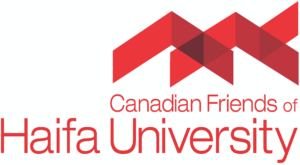The last Parliament featured debate over several contentious Internet-related bills, notably streaming and news laws (Bills C-11 and C-18), online harms (Bill C-63) and Internet age verification and website blocking (Bill S-210). Bill S-210 fell below the radar screen for many months as it started in the Senate and received only cursory review in the House. The bill faced only a final vote in the House but it died with the election call. This week, the bill’s sponsor, Senator Julie Miville-Dechêne, wasted no time in bringing it back. Now Bill S-209, the bill starts from scratch in the Senate with the same basic framework but with some notable changes that address at least some of the concerns raised by the prior bill (a fulsome review of those concerns can be heard in a Law Bytes podcast I conducted with Senator Miville-Dechêne).
Search Results for "c-18" : 197
Globe Technology Law and Policy – 2024
Global Technology Law and Policy: Spring 2024 (CML3351) Global Technology Law and Policy is an intensive seminar that is a collective initiative of the University of Ottawa, the University of Haifa, and Bocconi University in Milan with a selection of students from each university. This year’s course will take place […]
Why Years of Canadian Digital Policy Is Either Dead (Prorogation) or Likely to Die (Trump)
The Canadian political and business communities are unsurprisingly focused on the prospect of U.S. President Donald Trump instituting 25% tariffs on Canadian goods and services. The threat of tariffs, which could spark a retaliatory response by Canada and fuel a damaging trade war, would likely cause serious harm to the Canadian economy. But tariffs aren’t the only story arising from new Trump actions in his first day in office. Amidst the many executive orders signed on day one are several with significant implications for Canadian law, particularly Canadian digital policies such as the digital services tax, mandated streaming payments arising from Bill C-11, and mandated payments for news links due to Bill C-18. When combined the government’s decision to prorogue Parliament earlier this month, the results of years of Canadian digital laws and policies now largely fall into two groups: those that have died due to prorogation and those that are likely to die due to Donald Trump.
The Year in Review: Top Ten Posts
Last week’s Law Bytes podcast featured a look at the year in review in digital law and policy. Before wrapping up for the year, the next three posts over the holidays will highlight the most popular posts, podcast episodes, and Substacks of the past year. Today’s post starts with the top posts, which starts with a major copyright ruling involving fair dealing and digital locks. The remaining posts include four posts on the Online Harms Act and two on Bill S-210, alongside posts on the implementation of Bills C-11, C-18, and the recent decision to ban TikTok from operating in Canada.











